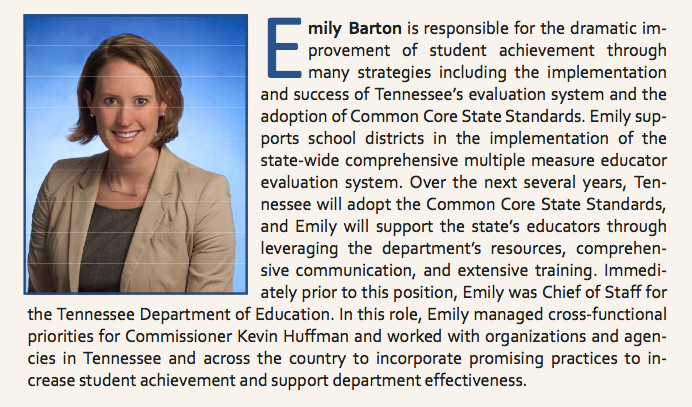Memphis teacher and blogger Jonathan Alfuth writes about strategies for retaining educators in an urban environment.
This past June, I completed my second year as a Teach for America teacher. I’d worked in one of the most struggling high schools in Memphis but rather than being scared away, it strengthened my commitment to teaching. Yet I knew that there was no way I’d return to my placement school. The culture didn’t promote student achievement, individual teachers operated in isolation and we had little shared vision for where we were going as a school.
Over the next few weeks, I did a comprehensive search of schools across Memphis. While I turned up several schools that I believed embodied the type of culture I desired, none of them were Shelby County Schools (all were charter). I made the choice to move to a charter school and I’ve been amazed by the difference in culture and its impact on student achievement. Our leaders are hardworking and dedicated to a common mission. My colleagues and I are given common planning time in content and grade level teams each and every week. And most importantly, we work together to develop the kind of school culture that drives students to success. I see its impact each and every day in the quality of my students work and their academic outcomes as so far, 100% of our graduating students have been accepted to 4-year schools.
My dilemma was recently discussed at the policy level in Shelby County during the school board’s decision whether or not to extend Teach for America’s contract with the district. The board voted to extend the contract, but the two opponents of extending the contract cited poor TFA retention beyond the program’s two year commitment in their opposition to its continuation. In the same piece, she also quoted Superintendent Hopson in a statement that perfectly encompasses my dilemma and the dilemma of second year TFA teachers every year. Hopson said, “I have to say, if effective talent is leaving the district at a 70-something percent rate, we have to look at strategies we can use to retain talent.”
I often find myself thinking that we’ve done so much to improve education both here in Memphis and across Tennessee. We’ve reformed teacher evaluation to identify our best and brightest. We’re on the verge of dramatically reforming teacher compensation in Tennessee. And yet all this means NOTHING if we cannot keep great teachers in high need classrooms once they are placed. This begs the question; what do educators really want? What will keep them in district classrooms? In my experience, young education professionals, TFA or otherwise, aren’t much different from most other young professions. We all have highly varied motivations for entering the profession. But in the end, great teachers gravitate towards environments with great school and district leaders, great office (or in this case school) culture that focuses on achievement and great colleagues that work together to achieve a common vision.
I am a TFA alumni but I also work closely with young educators from both alternative and traditional certification programs. And I believe strongly that my decision is one that almost every young educator in Shelby County faces at some point in their first two years. At the end of two years, many young educators, TFA or otherwise, feel a strong sense of commitment to their children and a desire to continue in education. However, we are often placed in such dysfunctional environments that we have to make a choice which feels like choosing between being a martyr for our kids by staying or abandoning them by quitting or moving schools. And so often the challenges inherent in district schools make the former untenable, and so we leave, either choosing a different school like I have or leaving the profession all together.
I should add that some schools in Shelby County have found a way to make it work and retain young educators beyond their first few years. Colleagues of mine at Ridgeway High, Whitehaven and Kingsbury High consistently tell me about the strength of their school leadership and the support they receive from their colleagues. We should certainly study these schools further, but they represent the exception rather than the norm.
Until district leaders devote attention to improving school cultures to make them attractive and professional work environments that attract young educators, we will continue to see an exodus of young teaching talent to other systems, schools or professions. And it won’t matter what program those educators come from if conditions are so challenging that teachers can’t fathom working in high need environments. We can extend or eliminate contracts with organizations like Teach for America, but that won’t fix the underlying fact that many young educators simply don’t feel that the school culture where the work is one where they can be successful.
I don’t want to leave this post without offering some solutions. I’ve already written a seven part series on a package of strategies that could be used to promote teacher retention in SCS, so I won’t rehash it here. If you’re interested in some research based strategies for how we could start building the types of school cultures that attract and retain high quality educators by enacting district level policies, I invite you to check the series out here.
Jonathan Alfuth is a math teacher at a charter school in Memphis. He blogs about education issues at Bluff City Ed
For more on Tennessee education politics and policy, follow us @TNEdReport
